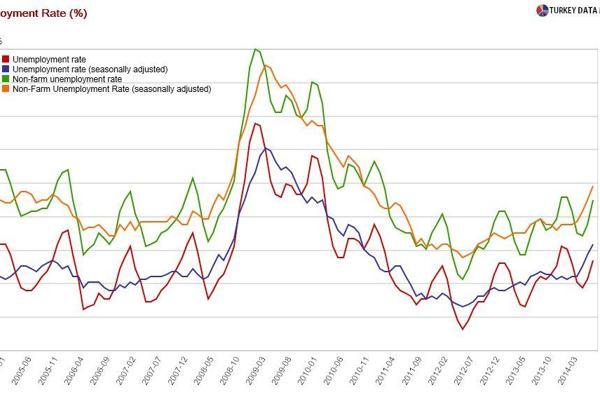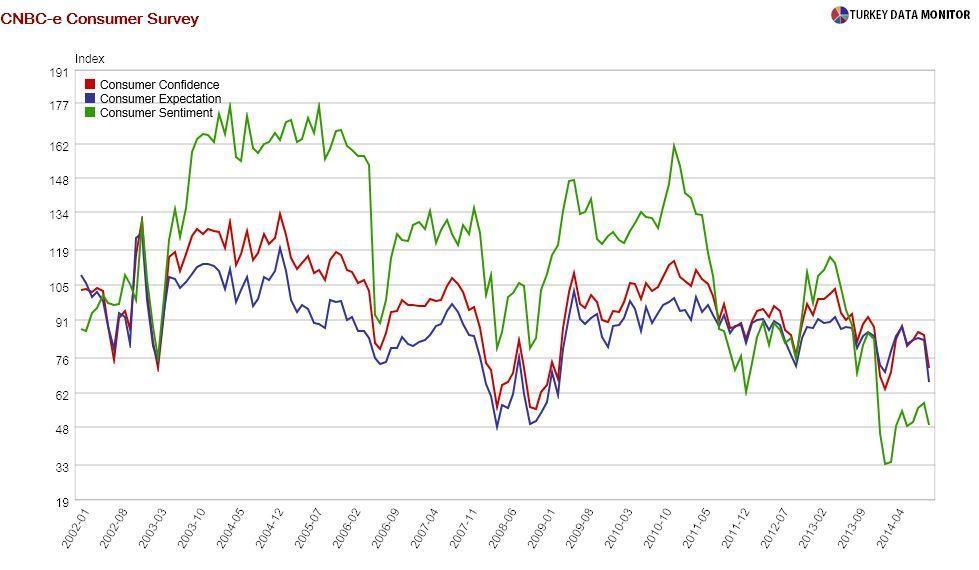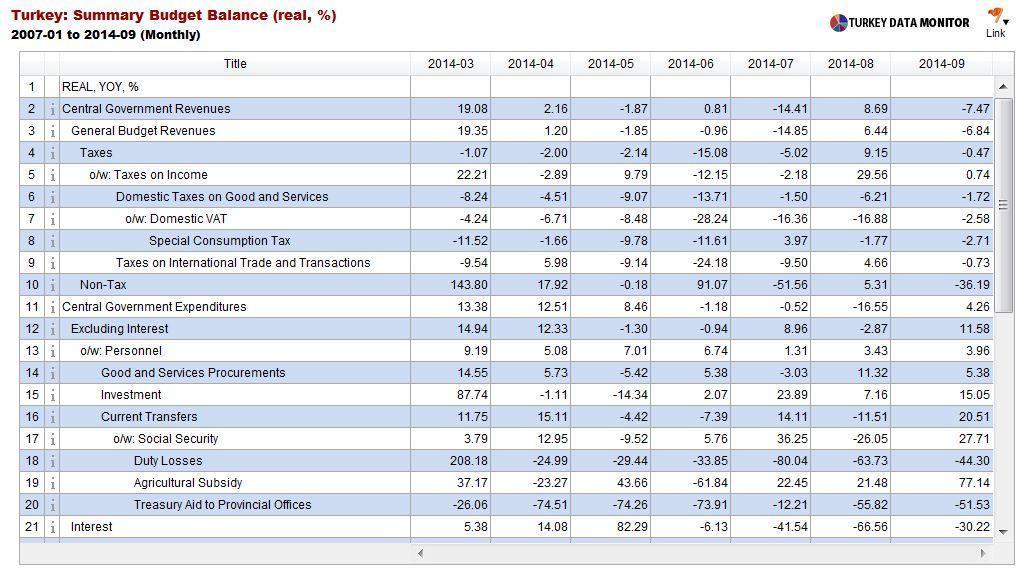The army of the unemployed threatens Erdoğan




Unfortunately, labor force statistics lag nearly three months, but Istanbul think tank Betam uses data from employment agency Kariyet.net to forecast official statistics. They expect the unemployment rate to finally fall in September after rising again in August.
However, other data from the week painted a less rosy picture. For example, the latest budget figures, which were released on the same day, revealed that tax revenues, a good coincident indicator of economic activity, had fallen in real terms (adjusting for inflation) in September. Business channel CNBC-e’s preliminary consumer confidence indices, which were released the day before, plunged in October.


Finance Minister Mehmet “Nominal” Şimşek recently confirmed my claim that Turkey would need to grow at least 3.5 percent or so to keep unemployment at bay. Therefore, even if Betam is right, the fall in the unemployment rate in September would probably be a temporary blip unless the growth outlook improves.
President Recep Tayyip Erdoğan needs a strong economy until the 2015 general elections, as he would like to get enough votes to change the Constitution for his dream of a powerful presidency. He is faced with serious risks, such as geopolitical tensions or a sudden stop in capital flows. While unemployment may look like a minnow compared to these, I’d argue that it is in fact a bigger risk in the medium-term.
After all, even if Erdoğan turns out to be as lucky as before and avoids the major risks, there isn’t much he can do about mediocre growth and the resulting rise in unemployment. Turkey cannot achieve even the 4.1 percent growth it averaged during the last decade in the absence of strong capital flows, the likely scenario for all emerging markets in 2015, unless the government implements reforms with short-term political costs, such as increasing labor market flexibility.
Erdoğan will therefore soon find himself in a bind: Both the rise in unemployment and the structural reforms needed to curb it will cost votes. He will probably try to boost growth and employment with monetary and fiscal policy. He may have already started to: the budget data from Oct. 15 showed that non-interest expenditures rose 11.6 percent in real terms in September. He will probably also start messing with the Central Bank again soon.


But fiscal and monetary policy cannot make Turkey grow anymore, not even at the expense of a ballooning the current account deficit, as there won’t be hot money to finance the deficit. Therefore, thank God I am not, but if I were him, I would leave the Central Bank alone and get started with the reforms.
After all, as the U.S. comedy show Seinfeld’s unforgettable Cosmo Kramer once remarked, “when there’s no work, and the people get restless, who do you think they come after? El Presidente!” Thank God he has the gas canisters and water cannons ready.
